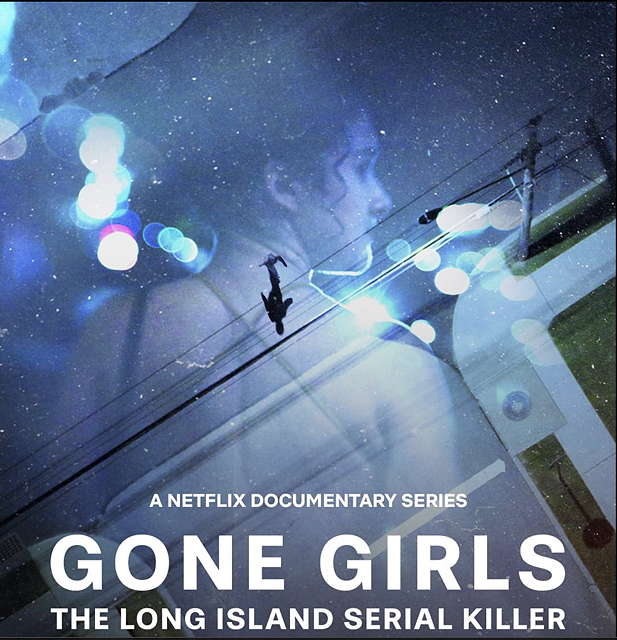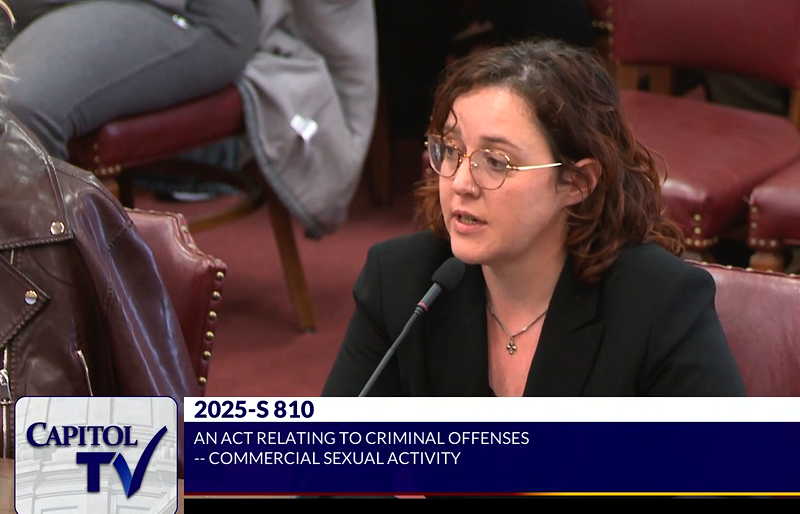April 15, 2025
The new documentary Gone Girls shines a light on one of the most disturbing unsolved serial murder cases in recent American history: the Gilgo Beach, NY, killings. By centering the lives of the women whose remains were found along a stretch of Long Island coastline — many of them sex workers — the film not only revisits the haunting details of the crimes, but also interrogates the broader systems that failed them. In doing so, Gone Girls powerfully demonstrates the need for immunity laws, which Decriminalize Sex Work advocates for around the country, that would protect sex workers and survivors of trafficking who come forward to report abuse, exploitation, or violence.
Between 2010 and 2011, the remains of at least 11 people — mostly women who had worked in the sex trade — were discovered near Gilgo Beach. For years, law enforcement made little headway in solving the case. Many families of the victims felt their loved ones were dismissed or devalued because of their work in the sex industry.
Gone Girls effectively demonstrates that the criminalization of sex work created the very conditions in which the Gilgo Beach killer could operate undetected. The women who vanished often worked independently, met clients online, and avoided police contact at all costs. Many had previously experienced violence or threats but felt too afraid to go to authorities — fearful they’d be arrested, lose custody of their children, or have their immigration status questioned. This fear, Gone Girls shows, is not incidental — it’s built into the legal structure that governs sex work in the U.S.
Had immunity laws been in place, the outcome might have been different. Such laws could have enabled victims to report violence or suspicious encounters without the looming threat of prosecution. Other sex workers may have come forward with useful information about dangerous clients, missing colleagues, or escalating patterns of violence. Law enforcement might have acted more swiftly, with better community cooperation, rather than treating victims as disposable.
The documentary also exposes how law enforcement itself contributed to a climate of mistrust. In several cases, police were slow to investigate disappearances or dismissed concerns raised by families. It was not until the murder of Shannan Gilbert — whose frantic 911 call led to the discovery of the burial site — was investigated that attention to the area was renewed. Yet even Gilbert’s case was initially minimized, with authorities at first claiming she had drowned accidentally, despite evidence to the contrary. Gone Girls highlights these failures, emphasizing how stigmatization and criminalization impair justice.
The message is clear: laws that criminalize sex workers do not prevent harm — they perpetuate it. The Gilgo Beach case is not only a tragedy of individual lives lost, but of a system that failed to protect them because of who they were and what they did to support themselves.
Gone Girls makes a compelling case for immunity laws as a starting point in addressing this injustice. Such laws would not legalize sex work, but they would provide legal cover for sex workers and survivors of trafficking to report crimes, seek protection, and act as witnesses without risking arrest. In an environment where serial predators know their victims won’t be believed — or worse, will be punished for speaking out — that protection can mean the difference between life and death.
Gone Girls humanizes the women behind the headlines and insists their lives and their rights matter. It tells a story which exemplifies the need for legal reform rooted not in ideology, but in the basic principle that everyone has the right to safety and autonomy and deserves access to justice.

Photo: Netflix.
DSW Newsletter #62 (April 2025)
DSW Staff Testifies in RI and NH

DSW Featured at Symposium on Policing Commercial Sex Work

NYPD Officers Assault and Extort Sex Workers

Gone Girls, the Gilgo Beach Murders, and the Case for Immunity Laws for Sex Workers

